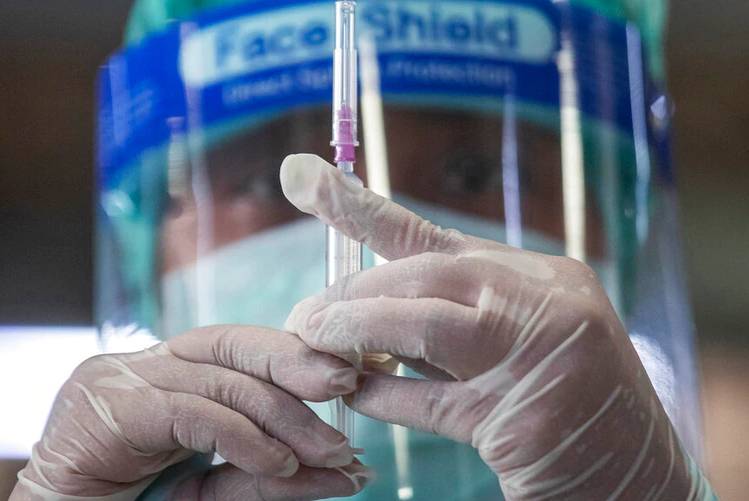Testing is under way for modified versions of COVID-19 vaccines that aim to deal with coronavirus variants.
Experts say current vaccines still seem to work against the variants and prevent the most severe forms of disease, though the evidence is limited. Making changes may not be necessary for all the vaccines.
"We don't know yet," said Emory University Vaccine Center Associate Director Walter Orenstein. "But people want to get prepared just in case we need to."
Testing and manufacturing will likely take months, he said, so now is the time to get started.
All major Western manufacturers with shots in use have announced studies involving either new shots targeted against a specific variant or additional booster shots of their existing vaccines.
The U.S. Food and Drug Administration has told drugmakers that they will need to show that the variant vaccines produce as strong an immune response against the variants as the original vaccines did against the original virus.
"This can be done more quickly than having to look at effectiveness against actual disease," Orenstein said. "But it will be a number of months."
Worrying variant
Mutated variants of the virus have undermined the effectiveness of the vaccines to varying degrees. The most worrying is the variant first detected in South Africa and now found in dozens of other countries, though less frequently. All of the vaccines lose some of their punch against this virus, and South Africa last month suspended use of the AstraZeneca-University of Oxford vaccine due to efficacy concerns.
B.1.351 shares mutations with a strain first found in Brazil, where cases are surging. These mutations are thought to help both viruses spread more easily and also make them less susceptible to the effects of the vaccines.
A vaccine against one variant may protect against both, said Baylor College of Medicine vaccine expert Peter Hotez.
"The hope is that they'll be close enough that [one variant vaccine] should cross-protect," he said. "But these studies take time, so we don't know for certain."
Moderna's shot was less potent against B.1.351 in test tube studies, but still appeared strong enough to work. The company announced earlier this month that it had started clinical trials of a vaccine specifically designed against this variant "out of an abundance of caution."
Like Moderna's shot, the Pfizer-BioNTech vaccine suffered in test tube studies against B.1.351 but still looked strong enough to protect against the virus.
“While we have not seen any evidence that the circulating variants result in a loss of protection provided by our vaccine, we are taking multiple steps to act decisively and be ready in case a strain becomes resistant to the protection afforded by the vaccine," Pfizer CEO Albert Bourla said in a statement.
Both the Moderna and Pfizer-BioNTech vaccines are easier to change than earlier types of vaccines, which used dead or weakened germs or germ parts to trigger the immune system. The Moderna and Pfizer-BioNTech shots are genetic recipes for those parts, not the parts themselves.
"It's relatively straightforward to swap out the genetic recipe for an earlier variant with a newer variant," said William Moss, executive director of the Johns Hopkins University International Vaccine Access Center. "Technologically, that's not a big lift."
Booster dose
While that remains an option, Pfizer-BioNTech said in February that they are focusing mainly on testing a third, booster dose of their original vaccine. Further strengthening the immune response might overcome a variant's ability to evade it.
Johnson & Johnson is also studying whether an additional dose of its vaccine would improve performance against variants.
The vaccine was 57% effective in a clinical trial in South Africa, compared to 66% in Latin America and 72% in the United States.
One of the biggest advantages of this vaccine is that it only requires one dose, while Moderna and Pfizer-BioNTech take two. But Johnson & Johnson announced last November that it was testing the effects of a second dose.
The AstraZeneca-University of Oxford vaccine took the biggest hit from B.1.351: just 10% effective against mild to moderate illness in a study published Wednesday.
The study did not test how well it works against severe disease and death. Experts expect that it does still provide protection, though that has not been studied yet.
Lead developer Sarah Gilbert at the University of Oxford told the BBC that she expected a modified version against B.1.351 would be ready by late this year.
The AstraZeneca vaccine is the one most widely used in the World Health Organization-backed COVAX vaccine distribution program.
The shots are currently on hold in several European countries over concerns about blood clots, though these may be coincidental and unrelated to the vaccine.
(VOA)

